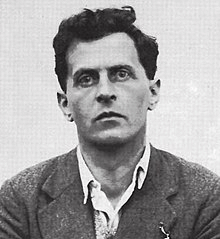
philosopher who worked primarily in logic
, the philosophy of mathematics
, the philosophy of mind
, and the philosophy of language
. He was professor in philosophy at the University of Cambridge
from 1939 until 1947. In his lifetime he published just one book review, one article, a children's dictionary, and the 75-page Tractatus Logico-Philosophicus
(1921). In 1999 his posthumously published Philosophical Investigations
(1953) was ranked as the most important book of 20th-century philosophy, standing out as "...the one crossover masterpiece in twentieth-century philosophy, appealing across diverse specializations and philosophical orientations".
"It is necessary to be given the prop that all elementary props are given." This is not necessary because it is even impossible. There is no such prop! That all elementary props are given is SHOWN by there being none having an elementary sense which is not given.![]()
A proposition is completely logically analyzed if its grammar is made completely clear: no matter what idiom it may be written or expressed in... ![]()
Tell them I've had a wonderful life.![]()
What is troubling us is the tendency to believe that the mind is like a little man within.![]()
Make sure that your religion is a matter between you and God only.![]()
A serious and good philosophical work could be written consisting entirely of jokes.![]()

